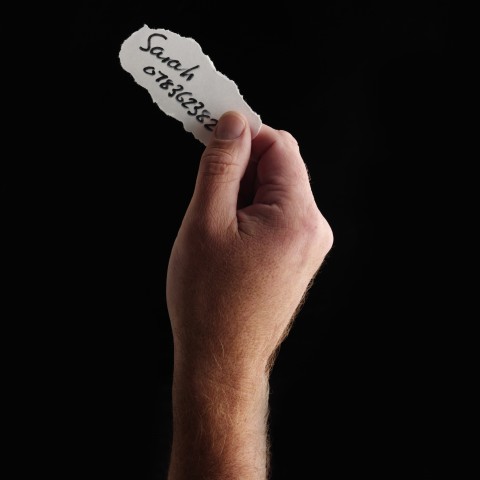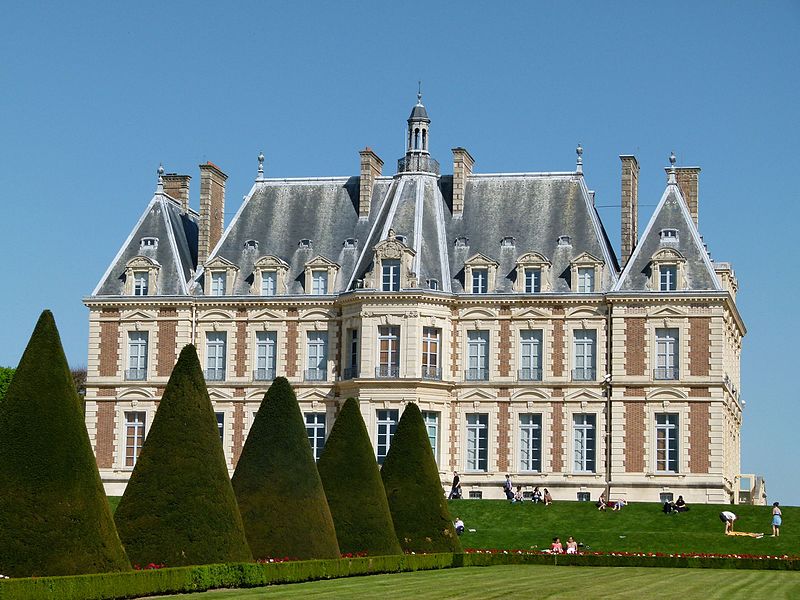
Did you know that the French language does not differentiate between “love” and “like”? When you say J’aime le fromage, it means that you like cheese. But if you say Je t’aime, it stands for “I love you” in French and certainly not just “I like you.”
This might be one of the reasons why the French are known to be rather quick about saying “I love you.” Unlike other cultures, they don’t necessarily mean that they want to get married and spend the rest of their days with the person, but more like they really like the person and love spending time together.
But I’m getting ahead of myself! In this guide, we’ll talk about love, of course, but also about flirting and seduction—from first contact to sweet talk for lovebirds—staying in touch, and spicing things up. We’ve even included a bonus section on the most infamous love quotes that you should never use.
 Table of Contents
Table of Contents
- First Contact
- Keep in Touch
- Take it to the Next Level
- Let’s Meet Again
- You’re in Love
- Bonus: The Worst French Love Phrases
- Le mot de la fin

All you need is love!
1. First Contact
Have you just seen the stylish guy over there with the stubble and fancy scarf? Or maybe you’re looking at the Mediterranean-looking girl with olive skin, high cheekbones, and dark hair?
If you’ve just gotten a crush on someone and want to make first contact, this is where we start.
In the following sentences—and throughout this guide—we’ll assume you’re in an informal setting such as a bar or a club, and using the casual tu (informal “you”) instead of the polite vous (formal “you”).
| Tu viens souvent ici ? | “Do you come here often?” |
| Tu veux danser ? Tu veux danser avec moi ? | “Do you want to dance?” “Do you want to dance with me?” |
| Je t’offre un verre ? | “Can I buy you a drink?” |
| In France, men are not expected to pay for everything and it’s common for couples on a date to split the bill. It’s perfectly fine to buy a girl a drink, but you should not feel obligated to do so. It’s more unusual for a girl to buy a guy a drink, but you’re sure to make an impression simply for being different. | |
| Tu es venu(e) avec ton copain ? Tu es venu(e) avec ta copine ? | “Did you come with your boyfriend?” “Did you come with your girlfriend?” |
| This is a not-so-subtle way to ask someone if they’re single. If you want to be even more straightforward, you could ask: Tu es célibataire ? (“Are you single?”) | |

Tu veux danser ? (“Do you wanna dance?”)
2. Keep in Touch
Now that you’ve made first contact, let’s imagine that you both had a good time and you want to spend more time with your potential date. You could set the next date right away or just smoothly get their phone number.
| Si on prenait un verre un de ces quatre ? | “What about having a drink one of these days?” |
| Un de ces quatre (literally: “One of these four”) is the short version of Un de ces quatre matins (“One of these four mornings”). It describes a short, undefined amount of time, such as “a few days,” and adds an element of uncertainty (it might just not happen at all). | |
| Je peux t’inviter à dîner ? | “Can I invite you for dinner?” |
| Like I mentioned before, it’s not necessarily up to the man to pay the bill and it’s not expected “by default.” However, this shouldn’t keep you from inviting someone for dinner, which implies that you’ll be paying. | |
| Je voudrais te revoir. J’aimerais bien te revoir. | “I’d like to see you again.” |
| Je peux te donner mon numéro ? | “Can I give you my number?” |
| Why give your number instead of asking for his/hers? Aside from being more courteous, giving your number first is a way to show interest right away. Then, if you’ve made a good impression and your potential date is interested, they’ll either return the favor right away or call you later. Just be cool about it and accept that it might not happen. | |
- → Now that you’ve made your move, you’ll want to know the Most Common Phrases You’ll Need for a Date and the 10 Most Romantic Ideas for a Date in French.

Je peux te donner mon numéro ? (“Can I give you my number?”)
3. Take it to the Next Level
Did you score that second date? Or a third, or more? Whether it’s your first or your tenth, if you feel like it’s time to shift into high gear, I’ve got you covered with these romantic French phrases:
| Tu veux sortir prendre l’air ? | “Do you wanna get some fresh air?” “Do you wanna get out?” |
| This is a rather casual request and a great way to see whether the person is interested in spending a bit of time alone with you, without having them commit to anything more. | |
| On va dans un endroit plus tranquille ? | “Do you wanna go somewhere quieter?” |
| It’s getting more serious than just sortir prendre l’air. | |
| Je te raccompagne ? | “Can I take you home?” |
| As early as the first date, you can ask her if you can take her home (it’s most commonly a guy thing). It doesn’t need to have any hidden meaning and you shouldn’t be offended if she declines. You’ll be showing good manners by offering, but keep in mind that your partner is not committing to anything, such as letting you in. | |
| Tu veux entrer prendre un verre ? | “Do you want to come in for a drink?” |
| This is often seen as a seduction technique, but you shouldn’t necessarily read too much into it. If you’re made such an offer and are willing to accept it, only assume that you’re going in for the drink and the conversation. Your partner is not committing to anything else for now. | |
| Tu me plais. | “I like you.” |
| This is more than “I like you.” You’d rarely say this to a friend and it’s more often used toward a partner or a romantic interest. It can also express physical attraction. | |
| J’ai envie de toi. | “I want you.” |
| This one is rather self-explanatory. | |
- → Did this put you in a romantic mood? Be sure to stop by our free list of French Quotes About Love.

J’ai envie de toi. (“I want you.”)
4. Let’s Meet Again
When you’re seeing someone and would like to spend more time together, you should probably let them know. Here are a few ways to express it:
| Tu me manques. | “I miss you.” |
| This is a peculiar and cute feature of the French language. Unlike in English, where missing someone is a direct action toward the person, the French version literally means “You are missing from me,” or “I’m missing you,” (in the same way that a dish would “miss” salt or pepper). Missing a person is like missing a part of yourself. | |
| On se revoit bientôt ? | “Are we meeting again soon?” |
| J’ai hâte de te revoir. | “I can’t wait to see you again.” |
| Je voudrais passer plus de temps avec toi. J’aimerais passer plus de temps avec toi. | “I’d like to spend more time with you.” |
| Je pense toujours à toi. Je n’arrête pas de penser à toi. | “I’m still thinking about you.” “I can’t stop thinking about you.” |

On se revoit bientôt ? (“Are we meeting again soon?”)
5. You’re in Love
There you are: You’re now completely head over heels, madly in love with your French date or partner, and you want to confess your love…or maybe tell your most trusted friends about it. Here are some French love words and phrases you can use to do so.
| Je t’aime. | “I love you.” |
| Even though we don’t have a clear distinction between “like” and “love” like English does, there are some ways to express the different levels of affection: Je t’aime bien (“I like you”) [Friendly] Je t’aime (“I love you”) [Romantic] Je t’adore (“I adore you”) [Could be friendly or romantic] For more information on the many shades of aimer (“to love” / “to like”), make sure to stop by the fifth chapter of our article on the Top 10 French Sentence Patterns. | |
| Je suis fou de toi. Je suis folle de toi. | “I’m crazy about you.” [Speaker is male] “I’m crazy about you.” [Speaker is female] |
| Tu es beau. Tu es belle. | “You’re beautiful.” [The other person is male] “You’re beautiful.” [The other person is female] |
| Mon amour Mon chéri Ma chérie | “My love” “My dear” / “My darling” [Male] “My dear” / “My darling” [Female] |
| These are just a few popular French terms of endearment, but there are many more: mon cœur (literally: “my heart”), mon bébé (“my baby”), mon chaton (“my kitten”). It’s all a matter of preference. | |
| Je suis tombé amoureux. Je suis tombée amoureuse. | “I’ve fallen in love.” [Speaker is male] “I’ve fallen in love.” [Speaker is female] |
| J’ai eu un coup de foudre. | “I’ve had a crush.” |
| This literally means that you’ve been struck by lightning. We generally use it to describe “love at first sight”: a very strong and immediate attraction. | |
- → Are you looking for more inspiration to declare your undying love? Our list of Love Phrases for Valentine’s Day might be just what you need.

Je t’aime. (“I love you.”)
6. Bonus: The Worst French Love Phrases
Do you feel like you’re too handsome and charming for your own good and you’re growing tired of constantly attracting the people around you?
Here is a collection of the most infamous French love quotes that remain inexplicably popular. You can use them if you want to make sure you’ll stay single.
| T’as d’beaux yeux, tu sais. | “You have beautiful eyes, you know.” |
| A famous quote from the movie Le Quai des Brumes (1938) with Jean Gabin and Michèle Morgan. There’s nothing inherently wrong with the quote, but it has been overused to the point where it sounds silly. | |
| T’es bien charmante mademoiselle. | “You’re very charming, miss.” |
| If you’ve been to Paris, you might have bumped into one of these groups of small-time dodgy-looking youngsters trying to act tough. If you’re a woman, they would most likely whistle at you and throw a bunch of distasteful comments in some futile attempt to look witty and seductive. This quote is rather harmless, but most French girls would run away at the sound of it. | |
| Lâche ton 06. | “Give me your mobile number.” |
| Literally: “Drop your 06.” It’s a reference to the first digits that all French mobile phone numbers used to start with. This is what generally comes after the T’es bien charmante and some more naughty comments. For the same reason, you should only use it to get rid of someone, or humoristically. | |
| J’te kiffe bébé. | “I’m into you baby.” |
| Kiffer (“to like” / “to love”) is the slang equivalent of aimer. | |
| Ton père est un voleur. Il a volé toutes les étoiles du ciel pour les mettre dans tes yeux. | “Your father is a thief. He stole all the stars from the sky to put them in your eyes.” |
| If you want the cheesiest of all French love phrases, look no further. | |

T’as d’beaux yeux, tu sais. (“You have beautiful eyes, you know.”)
7. Le mot de la fin
In this guide, you’ve learned how to say “I love you,” in French and how to use the most common and useful French love phrases. From the early flirting lines to intimate whispers and ardent confessions of love, you now have some phrases for every step of the way.
Did we forget any important love phrases you know? Don’t hesitate to share them in the comments below!
Make sure to explore FrenchPod101, as we have plenty of free resources for you to practice your grammar and learn new words. Our vocabulary lists are also a great way to review the words and learn their pronunciation.
Remember that you can also use our Premium PLUS service, MyTeacher, to get personal 1-on-1 coaching with your own private teacher who can help you practice. In addition to giving you assignments, personalized exercises, and recorded audio samples, your teacher will review your work and help you improve your pronunciation. Happy learning on FrenchPod101.com!
About the Author: Born and bred in the rainy north of France, Cyril Danon has been bouncing off various jobs before he left everything behind to wander around the wonders of the World. Now, after quenching his wanderlust for the last few years, he’s eager to share his passion for languages.

Negation in French: How to Say No and Deny Everything

Have you ever paid attention to all those books about The Gentle Art of Saying No, The Power of a Positive No, How to Say No Without Feeling Guilty, and many more?
Based on these titles, it would seem that there’s something inherently difficult about saying no. In fact, it could even be considered rude, insensitive, or socially disruptive…
…unless you happen to be in France! Here, you can safely say no to most questions without the need to carefully sugarcoat it.
Negation in French is rather similar to that in English, and once you’ve mastered the most basic structures, it shouldn’t give you any trouble.
In this guide, you’ll learn how to do negation in French. We’ll cover everything from the fundamentals to the more advanced rules, providing you with a list of the most useful negative words in French and examples of how to use them in sentences.

Non, pas du tout. (“No, not at all.”)
 Table of Contents
Table of Contents
- The Basics of Negation
- More Negative Words
- Important Negation Rules
- Negative Questions
- Negative Phrasebook
- Le mot de la fin
1. The Basics of Negation
There are four basic French negation words and phrase patterns you should become familiar with before moving forward. Here they are:
A- Non (“No”)
Let’s kick off with something straightforward: Non is the French equivalent of “No,” and that’s pretty much all you need to know about it.
– Tu aimes les films d’horreur ? (“Do you like horror movies?”)
– Non. (“No.”)
The main difference between non and its English equivalent is that non is mainly used as a negative answer to a question.
For structures such as “I have no time,” we use: Ne… pas. (Je n’ai pas le temps.)
B- Ne… pas (“Don’t”)
There you have it: The bread and butter of negation in French. Ne… pas is a structure you’ll see and hear a lot as you learn French.
The basic rule is to place ne and pas around the verb.
- Je sais. (“I know.”)
Je ne sais pas. (“I don’t know.”) - Je bois du vin. (“I drink this wine.”)
Je ne bois pas de vin. (“I don’t drink this wine.”)
If you’ve ever used French verbs starting with a vowel sound, do you remember how the pronoun can adapt to make the sentence smoother?
Let’s take the verb aimer (“to love,” “to like”) with the pronoun je (“I”) for example:
Je + aime =
Je aime
J’aime (“I like”)
The same thing happens with Ne… pas, but this time, the Ne becomes N’:
- J’aime la pluie. (“I like the rain.”)
Je n’aime pas la pluie. (“I don’t like the rain.”) - J’écoute la radio. (“I listen to the radio.”)
Je n’écoute pas la radio. (“I don’t listen to the radio.”)
C- Ne… plus (“Don’t… anymore”)
This structure is very similar to Ne… pas and shortens the pronoun in the same way.
- Je sais. (“I know.”)
Je ne sais plus. (“I don’t know anymore.” / “I don’t remember.”) - J’écoute la radio. (“I listen to the radio.”)
Je n’écoute plus la radio. (“I don’t listen to the radio anymore.”)
D- Ne… que (“Only”)
Even though this is not a negative sentence per se, this structure uses Ne which might confuse you the first time you bump into it.
Ne… que follows the same structure as Ne… pas:
- Je ne bois que du vin. (“I only drink wine.”)
- Je n’invite que mes amis. (“I only invite my friends.”)
What we’re really saying is:
- “I don’t drink anything but wine.”
- “I don’t invite anyone but my friends.”
Practice the basics of French negation with this free lesson on FrenchPod101.com.

Je ne mange pas de viande. (“I don’t eat meat.”)
2. More Negative Words
Of course, depending on how specific you want to be or the message you want to get across, there are a few more French words for negation you should have handy:
A- Ni… ni (“Neither… nor”)
At first glance, Ni… ni is pretty easy to use.
- Ni oui ni non (“Neither yes, nor no”)
Then, you can combine it with Ne or N’ to make a sentence. It forms kind of a double negation.
- Je n’aime ni la pluie ni le soleil. (“I like neither the rain nor the sun.”)
You can add more ni if needed. In that case, you’d usually separate them with commas.
- Je n’aime ni la pluie, ni le soleil, ni le brouillard. (“I like neither the rain, nor the sun, nor the fog.”)
Partitive articles (du, de la, des: “some”) and indefinite articles (un, une: “a”) are omitted when using Ni… ni.
- J’ai un chat et un chien. (“I have a cat and a dog.”)
Je n’ai ni chat ni chien. (“I have neither a cat nor a dog.”) - Je mange du pain et du fromage. (“I eat bread and cheese.”)
Je ne mange ni pain ni fromage. (“I eat neither bread nor cheese.”)
B- Common Negative Words
Here are some more useful negative words and how to use them.
| Jamais (“Never”) | Je ne bois jamais de vin. (“I never drink wine.”) |
| Personne (“Nobody”) | Personne n’écoute la radio. (“Nobody listens to the radio.”) Je n’écoute personne. (“I don’t listen to anybody.”) |
| Rien (“Nothing”) | Rien ne change. (“Nothing changes.”) Je ne mange rien. (“I’m not eating anything.”) |
| Aucun(e) (“No,” “None”) | Aucun problème. (“No problem.”) – With a masculine noun. Tu n’as aucune preuve. (“You have no proof.”) – With a feminine noun. |
| Nulle part (“Nowhere”) | Nulle part ailleurs. (“Nowhere else.”) Je ne vais nulle part. (“I’m not going anywhere.”) |
As you probably noticed, these words create lots of double negation, but this is perfectly fine in French.
- Je ne mange rien. (Literally: “I don’t eat nothing.”)
- Tu n’as aucune preuve. (Literally: “You don’t have no proof.”)
And of course, you can combine these negative words together for even more negation power!
- Tu ne crois jamais personne. (“You never believe anyone.”)
- Je ne fais jamais rien. (“I never do anything.”)
- Il ne voit plus personne. (“He doesn’t see anybody anymore.”)

Je n’aime ni le café ni les cravates ! (“I like neither coffee nor ties!”)
C- Old-fashioned Negation Words
Ne… point and Ne… guère are two literary words that you might find in classic books or academic writing, but never in a conversation (unless used in a quote, or humoristically).
In a sentence, they behave exactly like Ne… pas.
Point is the equivalent of “not at all.”
- Je ne travaille point. (“I’m not working at all.”)
Guère is the equivalent of “not much,” “very rarely,” or “very few.”
- Je ne travaille guère. (“I’m not working much.”)
Get more practice with these common negative words by learning to say what you will never do in French.
3. Important Negation Rules
Now that you know the basics and have a collection of negative words at your disposal, it’s time to go deeper and learn the most important French negation rules.
A- Compound Tenses
Compound tenses, like the passé composé, combine two verbs: Auxiliary verb + Verb.
- Elle a mangé. (“She has eaten.”) – Auxiliary avoir + manger
- Elle est partie. (“She has left.”) – Auxiliary être + partir
You know that the basic rule is to place ne and pas around the verb, right? With compound tenses, we place them around the first verb: the auxiliary.
- Elle n’a pas mangé. (“She has not eaten.”)
- Elle n’est pas partie. (“She has not left.”)
Is it still confusing? Let’s see more examples:
| Présent (Present) | Passé composé (Present perfect) |
| Je mange. (“I eat.”) Je ne mange pas. (“I don’t eat.”) | J’ai mangé. (“I have eaten.”) Je n’ai pas mangé. (“I haven’t eaten.”) |
| J’écoute la radio. (“I listen to the radio.”) Je n’écoute pas la radio. (“I don’t listen to the radio.”) | J’ai écouté la radio. (“I have listened to the radio.”) Je n’ai pas écouté la radio. (“I haven’t listened to the radio.”) |
| Je ne mange rien. (“I don’t eat anything.”) | Je n’ai rien mangé. (“I haven’t eaten anything.”) |
| Je ne bois jamais de vin. (“I never drink wine.”) | Je n’ai jamais bu de vin. (“I’ve never drunk wine.”) |
| Elle ne mange ni pain ni fromage. (“She eats neither bread nor cheese.”) | Elle n’a mangé ni pain ni fromage. (“She has eaten neither bread nor cheese.”) |
B- Undefined Articles
Partitive articles (du, de la, des: “some”) and indefinite articles (un, une: “a”) are usually replaced with de in negative sentences.
- Je bois de la bière. (“I drink beer.”)
Je ne bois pas de bière. (“I don’t drink beer.”) - Nous avons des gâteaux. (“We have cakes.”)
Nous n’avons pas de gâteaux. (“We don’t have cakes.”) - Elle a un chat. (“She has a cat.”)
Elle n’a pas de chat. (“She doesn’t have a cat.”) - Elle porte une robe. (“She’s wearing a dress.”)
Elle ne porte pas de robe. (“She’s not wearing a dress.”)
This rule doesn’t apply to Ne… que, as it’s not strictly a negative expression.
- Je mange du fromage. (“I eat cheese.”)
Je ne mange pas de fromage. (“I don’t eat cheese.”)
Je ne mange que du fromage. (“I only eat cheese.”)

Je ne bois pas de bière. (“I don’t drink beer.”)
C- Negation of the Infinitive
In a negative sentence with an infinitive verb, Ne and pas are placed together before the verb.
- Elle m’a dit de ne pas faire ça. (“She told me not to do that.”)
- Merci de ne pas utiliser l’ascenseur. (“Thank you for not using the elevator.”)
D- Oral Shortcuts
In spoken French, it’s very common to skip the Ne entirely. Only the Pas remains to express the negation.
Unless you’re in a formal setting such as a job interview or a business meeting, you should drop it or it will sound either foreign or uptight.
- Written: Je ne sais pas. (“I don’t know.”) [Formal]
Spoken: Je sais pas. (“I don’t know.”) [Casual] - Written: Je n’aime pas la pluie. (“I don’t like the rain.”)
Spoken: J’aime pas la pluie. (“I don’t like the rain.”)
4. Negative Questions
Conveniently, negative questions follow the same rules as declarative sentences. They use the same words, structure, order, and so on.
In French, there are two ways you can form a given question. With that in mind, the French negation structures for questions are as follows:
Normal / Casual:
- Ils ont un chat ? or Est-ce qu’ils ont un chat ? (“Do they have a cat?”)
- Ils n’ont pas de chat ? (“Don’t they have a cat?”)
Written / Formal: [with inversion of subject and verb]
- Ont-ils un chat ? (“Do they have a cat?”)
- N’ont-ils pas un chat ? (“Don’t they have a cat?”)
In the following table, I will focus on the casual style which is much more common. The inversion of subject and verb is barely ever used in spoken French, even in formal professional settings.
| Statement | Question |
| Vous écoutez la radio. (“You are listening to the radio.”) Vous n’écoutez pas la radio. (“You are not listening to the radio.”) | Vous écoutez la radio ? (“Are you listening to the radio?”) Vous n’écoutez pas la radio ? (“Aren’t you listening to the radio?”) |
| Vous avez écouté la radio. (“You have listened to the radio.”) Vous n’avez pas écouté la radio. (“You haven’t listened to the radio.”) | Vous avez écouté la radio ? (“Have you listened to the radio?”) Vous n’avez pas écouté la radio ? (“Haven’t you listened to the radio?”) |
| Elle ne boit jamais de vin. (“She never drinks wine.”) | Elle ne boit jamais de vin ? (“Does she never drink wine?”) |
- → Do you need some French negation practice? Why not have a look at this intermediate lesson on negative phrases?

Il n’écoute pas la radio ? (“Doesn’t he listen to the radio?”)
5. Negative Phrasebook
Now that you’ve become quite knowledgeable about negation in French, let’s be more practical and look at the most common negative expressions you might want to remember.
- De rien (“You’re welcome”)
This is what you can answer when someone says Merci (“Thank you”).
It uses the word rien (“nothing”), which we saw earlier. It literally means: “For nothing.”
- Pas du tout (“Not at all”)
You can use this expression as an answer to a question, or make sentences with it, such as:
Je n’ai pas faim du tout. / Je n’ai pas du tout faim. (“I’m not hungry at all.”)
Ce n’est pas du tout certain. (“This is not certain at all.”)
- Pas encore (“Not yet”)
Elle n’est pas encore partie. (“She hasn’t left yet.”)
- Pas trop or Pas vraiment (“Not too,” “Not so,” “Not really”)
Je n’ai pas trop faim. (“I’m not so hungry.”)
Elle n’aime pas vraiment le fromage. (“She doesn’t really like cheese.”)
- Ça ne fait rien. (“It doesn’t matter.”)
A bit more practice on the fundamentals of French negation? Stop by our free lesson to review the use of Ne… pas, indefinite articles, and more.
6. Le mot de la fin
In this guide, you’ve learned everything about negation in French, from basic negative expressions to more advanced rules and how to form negative questions. You’re also well-equipped now with a list of the most useful negative words in French.
Did I forget any important negative words that you know? Feel free to share it with your fellow students in the comments below!
FrenchPod101 also has tons of vocabulary lists with audio recordings and free resources to boost your studies and keep your French learning fresh and entertaining!
Remember that you can also use our Premium PLUS service, MyTeacher, to get personal 1-on-1 coaching with a private teacher. He or she will help you practice negation (and much more!) through assignments, personalized exercises, and recorded audio samples to help you improve your pronunciation.
Happy learning on FrenchPod101.com!
About the Author: Born and bred in the rainy north of France, Cyril Danon has been bouncing off various jobs before he left everything behind to wander around the wonders of the World. Now, after quenching his wanderlust for the last few years, he’s eager to share his passion for languages.

How Long Does it (Realistically) Take to Learn French?

This is the most frequently asked question about the language, and yet it has no definite answer. It depends on many things, such as your native language, education, experience with languages, exposure, and motivation.
Beyond that, how long it takes to learn French depends heavily on the proficiency level you want to achieve. Do you want to…
- …reach a beginner level?
- …be able to make and understand very basic phrases related to everyday life?
- …achieve an intermediate level that would allow you to get by in simple conversations on familiar topics?
- …get to an advanced level, so you could have meaningful interactions and read or listen to virtually anything?
As you can imagine, these are very different goals with different time frames. But whatever you have in mind, there are some neat techniques you can use to learn French faster.
In this article, you’ll learn how to realistically estimate how long it will take you to learn French depending on your background and the proficiency level you have in mind. Then, we’ll see how to beat these estimates by choosing the right tools for the job.

Speed up your French studies!
 Table of Contents
Table of Contents
- The Many Factors Involved
- From Beginner to Advanced
- French Learning Tools for Every Level
- Le mot de la fin
1. The Many Factors Involved
Before we talk about how long you should expect to study in order to reach each level, there are a few factors you should keep in mind. These factors will impact how fast you can learn French and help you better estimate your total learning time.
1 – Your Native Language vs. French
Most time estimates on how long it takes to learn French are based on the assumption that your native language is English. If that’s not the case, it will clearly impact the numbers. Languages with similar roots as one’s own language are easier and quicker for that person to learn.
In any case, if you’re reading this article, it means your English level is already really strong. And this is great news! English and French both have strong Latin influences and share a lot of similarities in their vocabulary and grammar. If you know English, you already have a nice head-start on many things that would otherwise be long and difficult to learn, such as the Latin alphabet and the core structures.
And if you’re a native speaker from another Romance language such as Spanish, Portuguese, or Romanian (to name a few), it’s even better. Even before you start studying, you’ll be able to correctly guess the meaning of many complex technical words just because they look similar to their equivalents in your native language.
2 – Your Language Learning Experience
How strong are your language learning muscles?
If you already speak a foreign language or were raised in a bilingual environment, you can shave quite a bit of time off your estimate. It’s usually faster to learn a third language than it is to learn a second one.
This is because your brain is already accustomed to the gymnastics of language learning and you already know how to study, memorize vocabulary, practice, and so on. Also, the more languages you’re exposed to, the easier it gets to decipher their logic and understand the inner workings of their grammar and structures.
3 – Your Motivation
Why are you learning French?
Do you need to be proficient to work in France? Are you dating a cute French girl or a handsome French guy? Is it a hobby or a necessity? Maybe you’re just passionate about linguistics and want to learn French for the sake of it?
There are many reasons one might learn French, and your motivation will impact your level of commitment and how much time and effort you’re willing to put into it. Motivation is also what makes or breaks most French learners. You’ll have to keep your motivation alive by frequently reminding yourself why you’re studying.

Being able to buy croissants at your French bakery is good motivation!
4 – How Are You Learning?
Are you learning at school or at university? Casually studying on your own? Or already in a French-speaking country and fully immersed in the language?
Your learning method will play a key role in how fast you make progress and reach your desired French level. And of course, it depends on how much time you’re willing to invest in your studies. For better results, I’d recommend using a mix of different techniques, such as academic learning + online self-teaching, or online lessons + full immersion.
Hold that thought—we’ll talk more about learning techniques in a moment!
2. From Beginner to Advanced
According to FSI (Foreign Service Institute) and ELC (European Language Center), French is one of the most accessible languages for native English speakers. It’s even on FSI’s list of the top ten easiest languages to learn for English speakers, alongside Spanish and Italian.
They evaluate that it should take around 24 weeks (~600 hours) for the average student to reach a general professional proficiency (speaking and reading). This is the equivalent of Level 3 on FrenchPod101.com and approximately DELF B2.
Now, let’s see what that means and talk about the different levels of French.
I’ll use the DELF & DALF system, as it’s the most commonly used both academically and for French proficiency tests.
- → Speaking of which, if you’re indeed interested in the tests, we have a complete guide on how to pass the DELF / DALF exams with flying colors!
1 – Beginner Level
Let’s start at the beginning, A1.
| At this level, you know how to use and understand everyday expressions as well as simple statements about practical needs. (I want this. Where is that?) You can introduce yourself, ask questions about someone, and answer similar questions. Your conversation skills are rather basic, but if the other person is talking slowly and articulating enough, you can exchange simple information. |
At this point, you’re most likely not going to start watching French movies without subtitles, hoping it will eventually click. You need to build a foundation by learning how the language works. This means studying:
- Word order
- Present tense
- Basic conjugation
At first, you won’t need much vocabulary because you can build lots of different sentences using just a few words. For now, you’ll only need some basic nouns, verbs, and adjectives. Feel free to add some new words when you need them, but there’s no need to clutter your brain with an unnecessarily long vocabulary list.
At this level, flashcards are your best friends. You can use them to remember words as well as simple phrases, conjugated verbs, and basically anything you want.
I would recommend Anki for PC or Ankidroid on mobile phones, but a simple search for “flashcards” will give you plenty of options.
I would also recommend tackling the pronunciation from day one. To that end, it’s generally a good idea to focus on spoken French over written French.
- ★ How long to reach A1? Around 80-100 hours.

Studying online can be fun with the right tools.
2 – Intermediate Level
The term “intermediate” is a bit vague, so we’ll talk about B1. (Intermediate intermediate? Sounds good!)
| At this level, you understand the main topics of a conversation when the language is not too complicated and if you’re familiar with the topic (work, school, hobbies, yourself). When traveling in a French-speaking country, you can get by and handle daily interactions. You can also make simple sentences about what you know and like, events, and experiences. Reaching this level also means you can explain basic projects or ideas. |
There’s a lot of ground to cover between beginner (A1) and advanced beginner (A2), and even more on your way to intermediate (B1).
You’ll start learning more vocabulary, structures, and phrase patterns. For example, you’ll learn how to describe your routine or your surroundings in more detail.
This is also when you start learning new tenses and new types of words, such as conjunctions and adverbs. You’ll get a better grasp of pronouns, and learn how to make your sentences lighter and smoother using them.
Considering how long you’ll study to reach B1, you should make sure to nip your most common mistakes in the bud (especially when it comes to pronunciation), as it will be harder to fix them in the future.
If you’re studying at school or university, be sure to make the most of any help your teachers can provide. If you’re studying on your own, this would be a good time to get at least a few hours of private lessons or more affordable online coaching to solidify your knowledge and make sure you’re on the right track.
- ★ How long to reach B1? Around 350 to 400 hours.
3 – Advanced Level
Let’s finish with an advanced level, C1.
| At this level, you can understand long, complex texts and their implicit meaning. You can talk fluently without hesitating too much or searching for your words. You can now use the language in an efficient and flexible manner, for both professional and personal conversations, and build sentences in varied ways. You’re also able to express your opinion on demanding topics in a clear and articulate manner. |
This is getting really serious. Double the time, double the effort. But if you got as far as B1, nothing’s gonna stop you now. The sky’s the limit!
First, you’ll have to reach B2 and then C1 (Expert). Of course, this is not the end; as you keep learning, you’ll expand your vocabulary and improve your confidence. That said, there’s no need to aim specifically for C2, as most native speakers don’t even have this level.
You can keep learning academically or through various online frameworks, but to reach such a level of proficiency, nothing beats deep immersion in your target language. Start watching movies, reading books, and listening to French music. But most importantly, find native speakers you can interact with regularly.
At this point, living in the country or spending at least a few months in France is the best option. You’ll get a massive dose of real-life French, with new accents, slang terms, and idiomatic expressions you wouldn’t find in grammar books.
- ★ How long to reach C1? Around 850 to 900 hours.

It takes an advanced level to be comfortable with group conversations.
3. French Learning Tools for Every Level
How long it takes you to learn French really depends on how much exposure you can get and how much time and sweat you’re willing to put into it—but that’s not to say you can’t speed it up with the right tools!
Like most things in life, quality beats quantity, and learning French in a smart way will often make up for not pouring ten hours a day into your studies.
Wondering how to learn French effectively? Below are a few tools and resources you can use to make the most of your study time.
1 – Online Lessons
When it comes to learning French anywhere and anytime, online classes are your bread and butter. They’re usually fit for any level and are much more affordable than schools or private lessons.
They’re also the most flexible option, as you can adapt them to your schedule. That said, you’ll have to carefully keep track of your progress and work consistently if you want to improve.
Many websites are entirely free and allow you to work at your own pace. But this can also be a double-edged sword. Personally, when I’ve paid any kind of fixed fee or subscription, I often find myself much more dedicated to making the best out of that investment.
| You can visit FrenchPod101 to get an idea of what online lessons have to offer. Even without a paid subscription, you can access a wealth of free content, including vocabulary lists, a YouTube channel, and countless lessons for every level. Take a look at this intermediate lesson, for example. You’ll find…
The recording and lesson notes can also be downloaded for use offline, allowing you to study them later from anywhere—even when you don’t have access to the website. |
2 – Private Teachers and Schools
Private schools and teachers are the most effective resources, but also the most expensive. If you can afford to attend regular French classes or hire a private teacher (either in person or online), it will help a lot, whether for getting a reliable foundation or honing your proficiency.
In any case, however, I would recommend reading students’ feedback and reviews carefully before committing to anything. Stay away from lazy academic courses with too many students per teacher, and beware of scams.
| For French classes, Alliance Française has been on the market for a while and can be found in many countries around the globe. They provide courses for all levels and can help you pass the DELF and DALF proficiency tests. They’re also shockingly expensive, in my opinion, so I’d advise you to check your local options. You might find something perfectly fine without having to sell a kidney. |
| For private teachers, you can find them online on your local equivalent of Craigslist. The French use Leboncoin, and other countries rely on Gumtree. For online teachers, websites such as iTalki are a good resource. The trial lesson is usually rather cheap, and it will give you a good idea of whether or not you want to work with the tutor. Finally, a cheaper and more flexible option is to subscribe to the Premium PLUS option on FrenchPod101.com. This will allow you to have one-on-one interaction with your personal teacher, who can help you with your studies, send you tests and exercises, give you feedback on your writing and pronunciation, and much more. |
3 – Soft Immersion
As you become more comfortable with your French, it will become more and more important to get as much exposure to the language as possible.
It’s all about immersing yourself in French, by any means necessary.
| Are you into movies or series? Why not browse your favorite streaming platform for French content? You can safely start with great classics such as Amélie or Léon. Depending on your level, you might want to start with English subtitles, switch to French subtitles when you’re ready, and finally switch to no subs at all. You can also find French movies on YouTube but they rarely have subtitles.
|
| Are you a gamer? Then why not try to play some amazing French titles in their original version? Games such as Ubisoft’s Assassin’s Creed Unity (which takes place during the French Revolution) or Asobo’s A Plague Tale would be a great place to start. |
| Listening to French music is another great way to immerse yourself in the language. Once again, YouTube is a good place to start. Once you’ve found a song you like, perform a new search with the name of the song + “paroles” or “lyrics” and you’re good to go. |
4 – Deep Immersion
This is not going to be a big reveal, but the best way to immerse yourself in the French language and make quick progress is to jump out of your comfort zone and spend some time right in a French-speaking country where you’ll be forced to speak and listen to French on a daily basis.
Try to make local friends, preferably who don’t speak English or prefer speaking French. (They’re still really easy to find. We’re not the brightest in Europe when it comes to foreign languages.) Work locally and even try chatting with random people whenever you’re out and about.
That being said, unless your native language is very similar to French (like Spanish or Italian), this is not something I would recommend for a complete beginner.
A deep immersion will mainly be beneficial to intermediate students who want to reach a more advanced level, or C1 learners trying to sharpen their skills or broaden their linguistic horizon with idioms and slang.

To learn as fast as possible, nothing beats deep immersion.
Le mot de la fin
In this guide, you’ve learned how long it takes to learn French, the many factors involved, the different levels of proficiency, and how to learn French fast using the right tools for every situation.
Did we forget any important tool from your learning arsenal? Do you feel ready to give it a go and kick your French into top gear?
Make sure to explore FrenchPod101, as we have plenty of free resources to help you practice your grammar and learn new words. Our vocabulary lists are also a great way to review new words and learn their pronunciation.
Remember that you can also use our Premium PLUS service, MyTeacher, to get personal one-on-one coaching and practice with your private teacher. Your teacher will provide you with assignments, personalized exercises, and recorded audio samples; he or she will also review your work and help you perfect your pronunciation.
Happy learning on FrenchPod101.com!
About the Author: Born and bred in the rainy north of France, Cyril Danon has been bouncing off various jobs before he left everything behind to wander around the wonders of the World. Now, after quenching his wanderlust for the last few years, he’s eager to share his passion for languages.

French Proverbs – An Insider Look at French Wisdom

Why are proverbs so popular? As old-fashioned as they can be, you read, hear, and use them on a daily basis. They reflect who we are and the values we stand for. They’re timeless and comforting, never seem to age, and always bring this old magical wisdom that helps us go through life.
Personally, what I find fascinating about proverbs is how they serve as a window to different cultures. When I hear Chinese, Russian, or Indian proverbs, I feel like I’m entering a whole new world with a wildly different culture and mindset to learn from.
French proverbs are no different, and this is what I’m offering you in this article: a window to popular French wisdom, made up of common proverbs and old sayings. They might not instantly make you wiser, but I’m hoping they’ll get you curious to learn more about the culture and history of France.

Be wise as a French owl!
 Table of Contents
Table of Contents
- Proverbs About Wisdom
- Proverbs About Success
- Proverbs About Life
- Proverbs About Family & Friends
- A Few More Proverbs for the Road?
- Le mot de la fin
1. Proverbs About Wisdom
Speaking of wisdom, let’s begin by looking at some proverbs in French that touch on how to live life wisely.
#1
| French | Il ne faut pas vendre la peau de l’ours avant de l’avoir tué. |
| Literally | “Don’t sell the bear’s hide before you’ve killed the bear.” |
| Equivalent | Don’t count your chickens before they hatch. |
| This traditional saying comes from Old French. It means that you should wait to act until you know that something is certain. Ne vendons pas la peau de l’ours avant de l’avoir tué, on ne sait pas encore si elle va gagner. “Let’s not count our chickens before they hatch; we don’t know yet if she will win.” | |
#2
| French | L’argent ne fait pas le bonheur. |
| Equivalent | “Money cannot buy happiness.” |
| Nearly identical to its English counterpart, this expression means that although money lets you buy things, it’s not enough to achieve happiness. The most materialistic people often follow it with mais il y contribue (“but it contributes to it”). Benjamin Franklin would argue: “Money never made a man happy yet, nor will it. The more a man has, the more he wants.” | |
- → Whether you’re dead broke or crazy rich, you’ll find everything you need to talk about money in French in our free vocabulary list on FrenchPod101.com.
#3
| French | Il n’y a que les imbéciles qui ne changent pas d’avis. |
| Literally | “Only fools never change their minds.” |
| Equivalent | A wise man changes his mind, a fool never will. A foolish consistency is the hobgoblin of little minds. (Emerson) |
| Our opinions may vary, and people clinging to their believes or decisions when they have every reason not to are being stupid. We use this proverb to point out stubbornness or to justify changing our minds. A: Je pensais que tu ne voulais pas lire ce livre. (“I thought you didn’t want to read that book.”) B: Il n’y a que les imbéciles qui ne changent pas d’avis. (“Only fools never change their mind.”) | |
#4
| French | On n’apprend pas au vieux singe à faire la grimace. |
| Literally | “We don’t teach the old monkey to make a face.” |
| Equivalent | This old dog knows all the tricks. |
| You don’t need to teach something to someone who has much more experience than you have. We typically use this expression when someone with less experience or knowledge is trying to explain something we find obvious or easy. | |
#5
| French | Il n’y a que la vérité qui blesse. |
| Literally | “Only the truth hurts.” |
| Equivalent | Truth hurts. |
| If you feel offended by a statement or reproach, it only proves that it was true. The most hurtful comments are the ones we deserve. This expression is often used as a taunt, or when someone is denying their fault or wrongdoing and acting offended by the accusation. | |
#6
| French | La vengeance est un plat qui se mange froid. |
| Equivalent | “Revenge is a dish best served cold.” |
| Vengeance is more satisfying when delayed and exacted with a clear head. You’ll take more pleasure if you wait until the heat of anger has cooled off, rather than take revenge as an immediate act of rage. There’s a common misconception about the origin of this quote, with many people claiming that it’s from the French novel Les Liaisons Dangereuses (“Dangerous Liaisons”) by Choderlos de Laclos. But the phrase actually appears in none of De Laclos’ work. As it stands, its origin remains unknown. | |

The old dog knows all the tricks.
2. Proverbs About Success
We all have our own definitions of success, defined by our personal goals and our outlook on the world. Here are a few French proverbs and sayings that speak on success in its many forms—and how to attain it!
#1
| French | À vaincre sans péril, on triomphe sans gloire. |
| Literally | “To win without risk is a triumph without glory.” |
| Equivalent | No guts, no glory. |
| Success won’t come if you’re not brave enough to take risks. This is a quote from Le Cid, a five-act French tragicomedy written by Pierre Corneille. The whole book is written in alexandrines (lines of verse always composed of twelve syllables), which is quite impressive! | |
#2
| French | Il ne faut pas mettre la charrue avant les bœufs. |
| Literally | “You should not put the cart before the oxen.” |
| Equivalent | Don’t put the cart before the horse. |
| This expression from the fifteenth century means that you shouldn’t go so fast that you fail to do things in the right order. Literally, it means that it makes no sense to have the cart placed before the oxen if the oxen are supposed to pull the cart. It’s often used to temper someone’s enthusiasm by reminding them to take their time and start at the beginning. | |
#3
| French | On n’est jamais mieux servi que par soi-même. |
| Literally | “You are never served better than by yourself.” |
| Equivalent | If you want something done right, do it yourself. |
| If you want something done exactly the way you want it, you should just do it yourself. This is a quote from the play Bruis et Palaprat (1807) by Charles-Guillaume Étienne. | |
#4
| French | Qui ne risque rien n’a rien. |
| Literally | “Who’s not risking anything gets nothing.” |
| Equivalent | Nothing ventured, nothing gained. |
| One must take risks to achieve something. If you don’t risk anything, you won’t get anything good. Quit that boring nine-to-five job, grab your backpack, and chase your dreams! Success is never guaranteed, but laying still will never take you anywhere. | |
#5
| French | Ne remets pas à demain ce que tu peux faire aujourd’hui. |
| Equivalent | “Don’t put off until tomorrow what you can do today.” (Benjamin Franklin) |
| No time like the present! You shouldn’t delay doing something if you can do it right now. This quote is a powerful mantra for serial procrastinators. I should get it as a tattoo. | |
#6
| French | C’est en forgeant qu’on devient forgeron. |
| Literally | “It is by forging that you become a blacksmith.” |
| Equivalent | Practice makes perfect. |
| To really become proficient at something, you need practice and not just theory. | |
#7
| French | À cœur vaillant rien d’impossible. |
| Literally | “To a valiant heart, nothing is impossible.” |
| Equivalent | – |
| A brave heart can accomplish anything. With enough courage, one can do the impossible. This quote was the motto of Jacques Cœur (1395 – 1456), silversmith for the French king Charles VII. | |
- → Eager for more inspiring words of wisdom? Don’t miss our vocabulary list of the Top 11 Quotes About Success.

« À cœur vaillant rien d’impossible. »
3. Proverbs About Life
We could all use a little guidance now and then as we navigate this thing called life. And more often than not, we end up looking to the wisdom of our predecessors for that extra insight. Here are a few common French proverbs about life that offer just that!
#1
| French | Chat échaudé craint l’eau froide. |
| Literally | “A scalded cat fears cold water.” |
| Equivalent | Once bitten, twice shy. |
| This is what you’d say if you were scared of doing something again because you previously had an unpleasant experience doing that thing. Bad experiences make us cautious, and sometimes even overly cautious. Likewise, the cat that got splashed with hot water will be scared of water, whether it’s hot or cold. | |
#2
| French | On ne change pas une équipe qui gagne. |
| Literally | “One does not change a winning team.” |
| Equivalent | If it ain’t broken, don’t fix it. |
| The English equivalent is pretty self-explanatory: There’s no need to make any changes to something that’s already working well. Le prochain John Wick sera encore réalisé par David Leitch et Chad Stahelski. On ne change pas une équipe qui gagne ! “The next John Wick movie will again be directed by David Leitch et Chad Stahelski. You don’t change a winning team!” | |
#3
| French | Il vaut mieux prévenir que guérir. |
| Literally | “It is better to prevent than to heal.” |
| Equivalent | Better safe than sorry. |
| You might use this proverb when it seems wiser to be careful and protect yourself instead of taking unnecessary risks. Je sais qu’il fait beau mais je vais prendre mon parapluie. Mieux vaut prévenir que guérir ! “I know it’s sunny, but I’ll take my umbrella anyway. Better safe than sorry!” | |
#4
| French | Il n’y a pas de fumée sans feu. |
| Literally | “There is no smoke without fire.” |
| Equivalent | Where there is smoke, there is fire. |
| If there’s any sign of something being true, then it must be at least partly true. Je ne crois pas aux théories du complot mais il n’y a pas de fumée sans feu. “I don’t believe in conspiracy theories, but where there is smoke, there is fire.” | |

« Il n’y a pas de fumée sans feu. »
4. Proverbs About Family & Friends
Wherever you live in the world, relationships are an essential part of everyday life. Gain some extra perspective on the topic with these French proverbs about family and friends.
#1
| French | Qui aime bien châtie bien. |
| Literally | “Who loves well, punishes well.” |
| Equivalent | Spare the rod and spoil the child. |
| This proverb is originally translated from Latin: “Qui bene amat, bene castigat.” It’s sometimes attributed to classical Greek philosopher Socrates. This is a bit different from the English equivalent. “Spare the rod and spoil the child,” implies that if you don’t punish a child when they do something wrong, they will never learn what’s right. In the French expression, we mean that when you love someone, you’ll punish them proportionally to their wrongdoing instead of being too harsh or ignoring their fault. If you don’t like someone, you’re more likely to be indifferent when they do wrong—but the behavior of your loved ones matters to you. | |
#2
| French | Qui se ressemble s’assemble. |
| Literally | “Those who look alike get together.” |
| Equivalent | Birds of a feather flock together. |
| People with similar interests or character tend to gather and spend time with each other. This proverb is often used pejoratively when disapproving of a shared characteristic or interest. | |
#3
| French | Mieux vaut être seul que mal accompagné. |
| Equivalent | “Better to be alone than in bad company.” |
| Identical to its English equivalent, this quote by Pierre Gringore reminds us that it’s pointless to seek company at all cost. If you can only be in bad company, you should rather be alone and enjoy yourself in the comfort of your mind palace. | |
#4
| French | Les bons comptes font les bons amis. |
| Literally | “Good accounts make good friends.” |
| Equivalent | Fast pay makes fast friends. |
| To preserve friendship, quickly pay your debts. Friendship and money never combine gracefully, so as Benjamin Franklin would say: “Never keep borrowed money an hour beyond the time you promised.” (Yes, I’m a Ben Franklin fan, he’s so quotable!) | |
#5
| French | Les chiens ne font pas des chats. |
| Literally | “Dogs don’t breed cats.” |
| Equivalent | The apple doesn’t fall far from the tree. |
| Children usually have similar characteristics or qualities to those of their parents. This expression can be used to highlight the parents’ talents: Elle joue déjà très bien de la guitare. Les chiens ne font pas des chats. “She’s playing guitar very well. The apple doesn’t fall far from the tree.” Or it can be used pejoratively: Il a un sale caractère. Les chiens ne font pas des chats. “He’s got a bad temper. The apple doesn’t fall far from the tree.” | |
- → Eager to learn more great quotes and proverbs? Have a look at our collections of the top quotes on Family and Friendship on FrenchPod101.com.

« Qui se ressemble s’assemble. »
5. A Few More Proverbs for the Road?
#1
| French | Rien ne sert de courir, il faut partir à point. |
| Literally | “It’s useless to run. You should start on time.” |
| Equivalent | Slow and steady wins the race. |
#2
| French | Il n’y a que celui qui ne fait rien qui ne se trompe jamais. |
| Literally | “Only those who do nothing never fail.” |
| This is sometimes used as a motivational quote when starting a new business or career. | |
#3
| French | Chassez le naturel, il revient au galop. |
| Literally | “Chase away the natural and it returns at a gallop.” |
| Equivalent | A leopard cannot change its spots. |
| If you go against your nature, it will never last. | |
#4
| French | A cheval donné, on ne regarde pas les dents. |
| Literally | “When given a horse, don’t look at its teeth.” |
| Equivalent | Never look a gift horse in the mouth. |
| This is said to advise someone not to refuse something when it’s offered. | |
#5
| French | Il n’est pire aveugle que celui qui ne veut pas voir. |
| Literally | “There is no worse blind man than the one who doesn’t want to see.” |
| Equivalent | You cannot reason with someone who’s not interested in the truth. |
#6
| French | Vouloir, c’est pouvoir. |
| Literally | “To want is to be able to.” |
| Equivalent | Where there is a will, there is a way. |
#7
| French | Après la pluie, le beau temps. |
| Literally | “After the rain, the good weather.” |
| Equivalent | Every cloud has a silver lining. |
#8
| French | On ne fait pas d’omelette sans casser d’oeufs. |
| Literally | “You don’t make omelets without breaking some eggs.” |
| Equivalent | No pain no gain. |
| You cannot achieve great things without making sacrifices. | |
6. Le mot de la fin
In this guide, you’ve learned about the most important French proverbs on a variety of topics, from wisdom to relationships. Did I forget any important proverb that you know? Or maybe you know some cool saying on a different topic? Make sure to share them with our community in the comments below!
If you enjoyed this lesson, FrenchPod101 also has tons of vocabulary lists with audio recordings, as well as free resources to boost your studies and keep your French learning fresh and entertaining!
Remember that you can also use our Premium PLUS service, MyTeacher, to get personal one-on-one coaching and have your private teacher practice with you. They’ll use assignments, personalized exercises, and recorded audio samples to help you improve your French skills like never before. Happy learning on FrenchPod101.com!
About the Author: Born and bred in the rainy north of France, Cyril Danon has been bouncing off various jobs before he left everything behind to wander around the wonders of the World. Now, after quenching his wanderlust for the last few years, he’s eager to share his passion for languages.

10 Places to Visit in Paris, the City of Lights

Have you ever been to Paris? Few cities around the world have aroused as much passion as the French capital. Locals often grow to hate it for its heavy traffic, pollution, and hectic lifestyle. Visitors love it for its high-class shopping and stunning architecture. Lovers from all over the world choose it as their honeymoon destination.
Whether you love it or hate it, Paris is a city like no other. Centuries of history, countless museums, enough sights and activities to keep you busy for weeks, and several contrasting districts to explore…these are but a few of the city’s most charming qualities.
What’s the best time to visit Paris? And what are the most amazing places to visit? You will know it all by the end of this guide.

Explorer Paris (“Exploring Paris”)

Table of Contents
- Travel Tips
- The Top 10 Must-See Places in Paris
- Places You Might Want to Skip
- Survival French for Travelers
- Le Mot De La Fin
1. Travel Tips
Paris is the capital—and by far the most populated—city of France, with more than two million people living in around 100 square kilometers. It lies at the center of the Île-de-France or Paris region, which has a population of twelve million.
Since the seventeenth century, Paris has been one of Europe’s most important centers for finance, business, science, fashion, and the arts. It received around 17.5 million visitors in 2018, ranking as the sixth most visited city in the world (after Hong Kong, Bangkok, London, Macao, and Singapore).
When?
March and May are usually the best months to visit Paris. If you can’t visit during the spring, autumn is another good option.
Winters are mild, but with school holidays in December and February, the streets get unpleasantly crowded. Summer, especially the month of August, can be really hot and wet. This is also when most Parisians go on vacation, and many shops and restaurants are closed for the month.
Getting Around
It’s very easy to navigate the capital and you’ll be offered many options, from strolling on foot (most of the center is beautiful and pedestrian-friendly) to using the Metro, buses, trains, trams, or bicycles.
Unlike its large metropolitan area, the inner city is rather small and packed with amazing architecture and sight-seeing. If you can afford the time, it’s well worth walking around.
Language
You can visit Paris without speaking French, but the more you learn before your trip, the better. It will allow you to interact with locals, read the signs and menus, and immerse yourself deeper into the culture.
Anyone who deals with tourists in Paris will speak some measure of English. As for the common folks, their level of English literacy is somewhat better than our national average (but still not great), and many Parisians are still completely helpless with English.
Sleeping
At the time of this writing, the cheapest dorm bed in Paris is 23€, and luckily, you can find several more relatively cheap hostels (23-30€) in the inner city. Double rooms can be found from 40€ if you’re adventurous, but it may be better to plan for a minimum of 60€ for something reasonably clean and comfortable.
Eating
You can find cheap meals starting at around 6€ (typically kebab or Chinese menus). A hearty and typical plat du jour (dish of the day) should be around 10-15€, and 15-20€ will buy you a three-course meal. Then, for more sophisticated food, you can find restaurants accommodating the highest budgets. The finest dining in world-class restaurants, such as Le Meurice, will cost you around 500€.

Un restaurant français (“A French restaurant”)
2. The Top 10 Must-See Places in Paris
Whether you’re a culture vulture, a nature-lover, a shopping addict, or a patron of the arts, you’ll find plenty of excitement in Paris.
In this list, I’ll give you a summary of the sights and attractions in Paris that should not be missed—not because they’re highly touristic, but because I believe they all offer something unique and remarkable.
1 – Tour Eiffel
I bet you didn’t see that one coming! And surprisingly, as cliché as this popular landmark in Paris may appear, the Eiffel Tower is probably the most controversial item on this list. Many Parisians find it ugly or unappealing, and more and more visitors prefer to stay away from its army of tourists, trinket-sellers, and endless waiting lines.
Did you know it was originally meant to be destroyed after serving its purpose?
Towering 300 meters over the Champs de Mars, this colossus of over 10,000 tons of iron was built specifically for the Exposition Universelle in 1889 and was supposed to be destroyed twenty years later. It was only saved by scientific experiments regarding radio transmission and telecommunications.
100 years later, the tower is still standing. It has become the stage for numerous international events, quickly rising to the top of the list of the most-visited monuments in the world.
I keep reading that you can get equally striking sights from the Montparnasse Tower, but would you rather see them from the top of a skyscraper or from this unique four-legged iron monster?
At night, it has to be seen to be believed. Lit up from head to feet, it brightens the city skyline as it gets illuminated with a ten-minute light show every hour, from dusk until one a.m.

La Tour Eiffel
2 – Notre-Dame & Saint Michel
Nested at the heart of Paris, on a small islet called Île de la Cité (“Island of the City”), the cathedral of Notre-Dame de Paris (Literally: “Our Lady of Paris”) is the most iconic and touristic monument in the whole city. Yes, it gets almost twice as many visitors as the Eiffel Tower!
But then, on April 15, 2019, a ferocious accidental fire raged for around fifteen hours despite the sustained efforts of thousands of firemen. By the time it was extinguished, the spire had collapsed and most of the roof had been destroyed. Luckily, the outside of the structure remained largely intact and a lot of damage was prevented by its stone vaulted ceiling which contained the roof as it collapsed.
The restoration of the cathedral started almost immediately; one year later, the forecourt of Notre-Dame was reopened. It will take at least four more years to bring it back to its former glory, but it’s still worth seeing it from the outside!
Despite its fame, I’ve personally never been that impressed with Notre-Dame. It looks just like many other French Gothic cathedrals in smaller cities such as Reims, Amiens, Chartres, and Anvers.
However, visiting Notre-Dame, you’re right at the center of the most beautiful Parisian districts:
North of Île de la Cité, you can reach the 4ème Arrondissement, one of the most iconic and sight-filled districts. You’re only one bridge away from another islet called Île Saint Louis, and just south of Notre-Dame, you can stroll through the Saint Michel neighborhood, which features countless restaurants, bookshops, and parks.

Notre-Dame de Paris
3 – Musée du Louvre
The Louvre is the world’s most popular museum, greeting ten million visitors every year. It’s home to more than 500,000 pieces of eclectic art, though only 35,000 are available to the public (for some mysterious reason).
Should you visit the Louvre? If you just want to see the Mona Lisa, please don’t and just buy a postcard. This is the single most-visited painting in the museum, and you won’t see much of her enigmatic smile while being ripped to shreds in a forest of selfie sticks.
Of course, there are plenty of other museums in Paris: Musée d’Orsay, Musée de l’Orangerie, Musée Rodin, Centre Pompidou. You could spend a good month just visiting them all.
But obviously, the Louvre is special—not only for its extensive collection, but also for the monument and its surroundings. The Pyramide du Louvre, a large glass pyramid located in the main courtyard of the Louvre Palace, is a prime example.

Le Musée du Louvre
4 – Jardin du Luxembourg
Located next to the Latin district of Paris, the Luxembourg Garden was created in 1612 at the request of Queen Marie de Médicis, to go along the new residence she was having built: the Luxembourg Palace.
Spread over 25 hectares of green elegance and floral magnificence, it’s split into two parts with different styles: English and French, separated by a geometric forest and a large pond. There is also an orchard, an apiary, a rose garden, a stunning collection of orchids, more than 100 statues, an enormous fountain, the Orangerie, and of course, the palace itself.
The gardens are a very popular spot for locals and it can get a little crowded. There, you can play chess, bridge, or tennis, stroll through the alleys, or sit next to the pond. Even though it’s right in the middle of the city, it has a pretty relaxed atmosphere.
5 – Montmartre
No matter how touristic it is, you can’t leave Paris without visiting Montmartre, the art district of Paris.
Historically, it’s renowned for attracting painters, writers, musicians, and comedians. And to this day, it’s full of eccentric and interesting people, colorful cafés, art galleries, and way too many souvenir shops.
At the heart of this charming district lies the Butte Montmartre, a small hill at the top of which stands the Sacré-Coeur (“Holy Heart”) Basilica. Take the cheap funicular or climb the 220 steps to reach the top, and you’ll be rewarded with a beautiful view of Paris’ rooftops.
But there’s more! From the top of Butte Montmartre, you’re only a short walk away from the world-famous Moulin Rouge. (If you haven’t watched the dazzling movie from Baz Luhrmann, it’s never too late.)
If you plan to visit Paris by night, are looking for the most iconic Parisian nightlife experience, and are ready to spend big, the Moulin Rouge is exactly what you need. This legendary cabaret has been running every night since 1889, with sparkling burlesque dancers adorned in rhinestones and feathers. (Due to the somewhat erotic nature of the show, it’s probably not the best place to take your kids, though.)

Le Moulin Rouge
(Photo by Keven Law – CC)
6 – Cimetière du Père Lachaise
Depending on where you’re from, it might sound weird or even disrespectful to visit a cemetery, but this is not the case in France—especially not in the large historical cemeteries in Paris, such as Père Lachaise, Montmartre, and Montparnasse.
Our cemeteries are an integral part of the city’s cultural heritage, visited by people from all around the world who want to see the tombs of the many celebrities buried there (such as Jim Morrison, Oscar Wilde, and Edith Piaf). It also makes for an unusual and picturesque walk in a peaceful atmosphere.
Personally, what I love about Père Lachaise is the surreal and eclectic architectures of the graves and mausoleums. All funeral styles are represented and the Gothic crypts are especially impressive.

Le cimetière du Père Lachaise
7 – Le Marais
If you want to take in a deep breath of typical Parisian style, head to one of the city’s oldest and coolest districts. Its typical cobblestone streets and small courtyards will make you feel like you’re strolling in Medieval Paris.
Le Marais (Literally “The Swamp”) was originally built on a swamp, but it’s hard to tell when strolling across its fancy streets and high-end fashion boutiques. It has numerous museums and art galleries, vintage shops, antiques, and nightlife ventures.
The district has become home to various communities over the last few centuries. Traditionally a Jewish quarter, it later became popular with Chinese emigrants after World War I. Nowadays, it’s famous for its thriving LGBT+ community.
There are lots of small restaurants to choose from and if you’re not in a rush, you can trust the length of the line to locate the best places. For a taste of what Le Marais has to offer, you can’t go wrong with Florence Kahn or L’As du Falafel.

“Pavillon de la Reine”, in Le Marais
(Photo by Alex59300 – CC)
8 – Catacombes de Paris
If the cemetery didn’t scare you away, how about we take it up a notch and dive into one of the most macabre and unsettling historical attractions Paris has to offer?
The Catacombs of Paris is an underground network beneath the streets of the city, with an ossuary hosting the remains of more than six million people. It was created in the eighteenth century to compensate for the city’s overflowing cemeteries.
There are a lot of creepy stories surrounding the catacombs, as you can probably imagine. But this hasn’t kept half a million visitors from heading down the dark tunnels each year since 1874, when it became open to public visitation. Upon entry, they’re greeted with the sign: “Stop. This is the empire of death.”
No one is certain of how large the catacombs really are, but they’re estimated to be around 320 kilometers. They’re largely inaccessible to date, but clandestine groups of catacomb enthusiasts (known as “Cataphiles”) frequently roam this underworld in search of thrills and uncharted sections.
Due to the illegal nature of these activities, it’s difficult to get in touch with any of these urban explorers. Unless you’re intimate with a member, you’ll have to opt for the organized tour. Just make sure you’re not claustrophobic!

Les Catacombes de Paris
(Photo by Vlastimil Juricek – CC)
9 – Parc de Sceaux
There are many parks in Paris, and some of them are really beautiful, like the Parc des Buttes Chaumont or the Parc Monceau. But as soon as the sun comes up, they get awfully crowded with locals and tourists alike.
Le Parc de Sceaux is kind of a secret gem and attracts much more of a local crowd than the more central gardens do.
The Domaine de Sceaux is a vast expanse of grass, colorful trees, flowers, and ponds, spread around a typical Renaissance castle. It’s much bigger (and quieter) than other parks in Paris, but just as elegant and beautiful.

Le Domaine de Sceaux
10 – La Seine
The Seine River splits Paris in half, and unless you’re blindly bus-hopping from one attraction to the next, you’re likely to spend a lot of your time strolling along its paved shores.
First of all, this is arguably the most romantic spot in Paris. Especially near Notre-Dame, strolling on its peaceful piers with the city lights reflecting on the canal is pure magic. (The water doesn’t look dirty at night!)
It’s so romantic indeed that you might have heard of the famous love-locks bridge, where lovers from all around the world attach a padlock as a symbolic way to “Lock their love forever.”
The trend started around 2008, and seven years later, the Pont des Arts (“Bridge of the Arts”) started to crumble under the weight of 700,000 locks for an estimated total of 93 metric tons of romance! At first, the city didn’t seem too keen on listening to grumpy locals calling it vandalism, but when it started threatening the bridge’s integrity, they had to replace the railing entirely.
On a less romantic note, did you know that Parisians used to drink the Seine’s water, use it to wash their laundry, and even swim in it? However, scientific analysis of the water in the 20s revealed that the water was highly toxic, polluted, and absolutely unsuitable for any water activity.
But none of this kept us from creating Paris Plage (“Paris Beach”). This oddity appeared in 2002, turning part of the banks of the Seine into a beach, with tons of sand as well as swimming pools, beach volley nets, ice cream stalls, tanning chairs—you name it!
Initially meant for those who couldn’t take summer vacations on the coast, Paris Plage is now a popular spot for everyone. Nobody’s crazy enough to actually swim in the Seine, though.

La Seine
3. Places You Might Want to Skip
After going through our Top 10, you may be surprised that some of the most iconic locations are missing. This is not an oversight, but rather a deliberate omission.
- L’Arc de Triomphe
This enormous piece of stone stands at the center of the Place de l’Étoile (“Star Plaza”). The monument itself is not especially pretty and it’s not tall enough to offer an interesting view of the city. More importantly, it’s right in the middle of one of the world’s busiest and noisiest roundabouts.
- Les Champs-Élysées
I never got the appeal of our “Elysian Fields.” This is nothing more than a glorified shopping street with thousands of tourists waiting in endless lines in front of luxury fashion shops. It’s also notorious for attracting pickpockets and scammers.
Don’t expect to do any regular shopping here, as you’re gonna need very deep pockets to afford a bag from Louis Vuitton or the most expensive Macarons you’ve ever seen.
- Le Château de Versailles
This is another timeless classic you could easily avoid. The Versailles Castle is quite remote and will likely take you a full day. As a result, I would only recommend it if you’re spending a week or more in the capital.
You can find better exhibitions in the central museums and equally interesting gardens in Jardin du Luxembourg or Jardin des Tuileries.
4. Survival French for Travelers
Even if you don’t speak much French, it’s generally recommended to greet people in French, as it will make for a much more positive first impression. Don’t worry, you can switch back to English as soon as you’ve greeted them. That said, they will appreciate you going the extra mile and learning a few more survival phrases.
| Bonjour ! Bonsoir ! | “Hello!” / “Good morning!” “Good evening!” |
| Au revoir. | “Goodbye.” |
| Merci (beaucoup). | “Thank you (very much).” |
| Non merci. | “No, thank you.” |
| S’il vous plaît. | “Please.” |
| Excusez-moi. | “Excuse me.” |
| (Je suis) désolé(e). | “(I am) sorry.” |
| Où sont les toilettes ? | “Where are the toilets?” |
- → For more useful travel phrases or pronunciation practice, please have a look at the following resources on FrenchPod101.com:
- How to Say Hello in French
- Vocabulary List: Common Ways to Say Hello
- How to Introduce Yourself
- Vocabulary List: 10 Lines You Need for Introducing Yourself
| Pouvez-vous répéter (s’il vous plaît) ? | “Can you repeat (please)?” |
| Un peu plus lentement, s’il vous plaît. | “A bit slower, please.” |
| Je suis désolé(e), je ne comprends pas. | “I’m sorry, I don’t understand.” |
| Vous parlez anglais ? | “Do you speak English?” |
- → These are just some basics to help you get by. For more resources on this topic, be sure to check out our survival guide on French Travel Phrases.
Le Mot De La Fin
In this guide, you’ve learned about the most amazing places to visit in Paris, from the obvious Tour Eiffel to some lesser-known gems like the Domaine de Sceaux or Père Lachaise. Did it get you excited about visiting the City of Lights? Or maybe you’ve been there already but missed some of its treasures?
Did we forget any important places you’ve seen or heard about? Don’t hesitate to share it with your fellow students in the comments!
Make sure to explore FrenchPod101.com, as we have plenty of free resources to help you practice your grammar and learn new words before you visit France. Our vocabulary lists are also a great way to review words and learn their pronunciation.
Remember that you can also use our Premium PLUS service, MyTeacher, to get personal one-on-one coaching with your own private teacher who will help you practice new travel phrases and more. In addition to providing you with assignments, personalized exercises, and recorded audio samples, your teacher will review your work and help improve your pronunciation.
Happy learning on FrenchPod101!

About the Author: Born and bred in the rainy north of France, Cyril Danon has been bouncing off various jobs before he left everything behind to wander around the wonders of the World. Now, after quenching his wanderlust for the last few years, he’s eager to share his passion for languages.
English Words Used in French: Do You Speak Frenglish?

Did you know that nearly 30% of English words might be of French origin? This is still a hot topic among linguists, but it speaks volumes about how languages influence each other, especially now that globalization is going full throttle.
Conversely, the English language has long been influential in the evolution of French, but with the rise of the internet, new technologies, and the uncontested power of Hollywood, English terms and expressions have been literally pouring into the French language in recent years.
In this article, you’ll learn everything about English words used in French and this weird two-headed language called Frenglish. We’ll cover it all, from loanwords to the excesses of business Frenglish, mysterious syntax mutations, and how the French are reacting to all this.

At work, after work, Frenglish is everywhere!
 Table of Contents
Table of Contents
- Frenglish or Loanwords?
- Legit Loanwords
- Fake Loanwords
- Know Your Frenglish
- The French Resistance to Anglification
- Le Mot De La Fin
1. Frenglish or Loanwords?
Before going any further, what are loanwords and how are they different from Frenglish?
1 – Le Franglais
Le Franglais (“Frenglish”) is a portmanteau word. It’s the combination of the words Français (“French”) and Anglais (“English”), and it describes the excessive mixing of French and English by French speakers.
It is a derogatory word used to denounce the overuse of English words in the French language, though it has lost some of its negative connotations over time. At best, you could use it to show self-awareness of your linguistic shortcomings any time you realize you’re using too many English words in your speech.
2 – English Loanwords
A loanword is a word taken from one language and incorporated into another without translation. These are not just look-alikes from a common etymology, but actual copy-pastes of foreign words without translation.
For example:
- Un sandwich (“A sandwich”)
- Le suspense (“Suspense”)
Let’s dive deeper into English loanwords and see why they’re going to be your best friends!
2. Legit Loanwords
As you learn French, you’re gonna love English loanwords! Because they’re borrowed from English with little to no changes, they are easy for English speakers to understand. And there are so many of them in French that they represent a wealth of free vocabulary you don’t even have to study!
While English loanwords in French are ubiquitous, they’re especially common in certain fields, such as technology and entertainment. Here are some examples:
1 – About Food
| Un sandwich | Un sandwich au thon, s’il vous plaît. (“A tuna sandwich, please.”) |
| Un burger | Un burger au bleu. (“A blue-cheese burger.”) |
| Un steak | J’aime mon steak saignant. (“I like my steak rare.”) |
| You might come across the word bifsteck, the francization of “beefsteak,” and…what can I say? It looks pretty gross to me, but to be fair, it’s outdated and barely used anymore by the younger generations. | |
| Un cocktail | Quel est ton cocktail préféré ? (“What is your favorite cocktail?”) |
| Un cookie | Un cookie au chocolat noir. (“A dark chocolate cookie.”) |
| Un chewing-gum | J’ai toujours des chewing-gums dans mon sac. (“I always have chewing gum in my bag.”) |
| If you ever come across the expression gomme à mâcher, know that it’s the French version of “chewing gum.” But it’s so old-fashioned that even my grandmother doesn’t remember about it. | |
| Happy hour | À quelle heure est l’happy hour ? (“At what time is happy hour?”) |
- → If this section made you hungry, why not indulge for a minute and stop by our vocabulary list on French Food? Spoiler alert: It features the amazing chestnut purée.
2 – About Technology
| Un mail, Un email | Je t’ai envoyé un mail la semaine dernière. (“I sent you an email last week.”) |
| The word un mail can be a bit tricky because we only use it for “email.” Paper mail is un courrier. Also, the strongest advocates for French purity eventually came up with a French word for “email,” hoping to replace un mail. And so, the questionable un courriel was created. Nowadays, except on some official documents, nobody ever uses it. | |
| Un bug | Il y a un bug dans la base de données. (“There is a bug in the database.”) |
| internet | J’utilise internet tous les jours. (“I’m using the internet every day.”) |
| In writing, you might also read l’internet, but it sounds a bit silly and outdated. If you come across les internet, just take a deep breath and pretend you didn’t hear that. (It sounds old and snobbish.) | |
| Un smartphone | J’ai vendu mon smartphone. (“I have sold my smartphone.”) |
| Un chat | Je vais lui poser la question sur le chat. (“I will ask him on the chat.”) |
| This has the same spelling as un chat (“a cat”), but we pronounce it like the English word “chat.” | |
- → You’ll find a few more of these loanwords on our free list of Technology vocabulary, with recordings for you to practice their pronunciation.
3 – About Movies
| Un trailer | Tu as vu le trailer du dernier James Bond ? (“Have you seen the latest James Bond trailer?”) |
| Un teaser | Le teaser de ce film est incroyable ! (“The teaser for this movie is incredible!”) |
| Un spoiler | C’est difficile d’éviter les spoilers sur internet. (“It’s difficult to avoid spoilers on the internet.”) |
| Un cliffhanger | Il y a un cliffhanger de fou à la fin de cet épisode ! (“There is a crazy cliffhanger at the end of this episode!”) |
- → On the same topic, make sure to stop by our list of Useful Words and Phrases for Going to the Movies.
4 – More Loanwords
| Un t-shirt | J’adore ton nouveau t-shirt. (“I love your new t-shirt.”) |
| Le week-end | Passe un bon week-end ! (“Have a good weekend!”) |
| Cool | Ce jeu est tellement cool ! (“This game is so cool!”) |
| Un parking | Il y a un parking à côté du magasin. (“There is a parking lot next to the shop.”) |
| Du shopping | Je vais faire du shopping demain. (“I’m going shopping tomorrow.”) |
| Un challenge | C’est un vrai challenge de se garer ici. (“It’s a real challenge to park here.”) |

Faire du shopping (“To go shopping”)
3. Fake Loanwords
Although loanwords are an incredible source of easy vocabulary, you should be aware that we’ve laid some traps along the way. A few English words have been improperly incorporated into the French language and have a different meaning.
They’re quite treacherous but not numerous, so all you need to do is keep them in a corner of your mind so you don’t get tricked.
Here are the most common ‘fake’ English loanwords in French:
| Le zapping | “Channel hopping” or “Channel surfing.” This refers to when you quickly browse TV channels. |
| Le footing | “Jogging” |
| Un camping | “Campsite” |
| Des baskets | “Sneakers,” “Trainers,” or more generally, “Sport shoes” |
| Un smoking | “Dinner jacket” or “Tuxedo” |
| Un break | “Estate car” or “Station wagon” |
| Le catch | “Wrestling” |
| Un planning | “Schedule” or “Work plan” |
| Un flipper | “Pinball machine” |
4. Know Your Frenglish
By definition, Frenglish is an overly Anglicized French language. We’ve seen that there are plenty of common English words used in French which have become an official part of the language. But when French speakers start overusing these English terms, expressions, and structures, Frenglish happens.
1 – Frenglish in Business
This tendency to overuse English words is especially obvious in the business world. If you’ve worked in any big French companies—especially in anything related to technology or entertainment—you might have heard this uncanny mixture of French and English words. It can get confusing even for the French themselves.
Here are a few examples with the English words highlighted in red:
- “I’m super-busy.”
- French: Je suis très occupé.
- Frenglish: Je suis super busy.
- “Can you forward me the report ASAP?”
- French: Tu peux me transférer le compte-rendu le plus vite possible ?
- Frenglish: Tu peux me forwarder le reporting ASAP ?
- “We’re going to debrief on the meeting’s bullet points.”
- French: On va faire un bilan sur les points importants de la réunion.
- Frenglish: On va debriefer sur les bullet points du meeting.
- “Do you want to change the date of the call to attend the workshop?”
- French: Tu veux changer la date de la conférence pour assister au séminaire ?
- Frenglish: Tu veux switcher la date du call pour assister au workshop ?
I’m not even exaggerating! And there are still several more English words used by the French in business settings:
- Burnout
- Corporate
- Brainstorming
- Mainstream
- Process
- Management / Manager
- Marketing
- Business

Un meeting corporate (“A corporate meeting”)
2 – Semantic Frenglish
More insidious, semantic Frenglish is when we mimic English expressions using English words that look like French words.
For example, the French word agressive (the feminine form of agressif) really looks like the English word “aggressive.”
However, in French, it means “who is prone to attack” or “to look for conflict.” And in English, it can mean “behaving in a determined and forceful way.”
What do we end up with?
- Cette société utilise une stratégie agressive sur les prix.
(“This company is using an aggressive pricing strategy.”)
This is an improper use of agressive that has become so common that nobody even raises an eyebrow anymore. It’s all over the newspaper and TV, and people have just gotten used to it. And there are many similar words out there.
There are also some increasingly popular Frenglish expressions:
- “I’ll get back to you.”
- French: Je vous recontacte.
- Frenglish: Je reviens vers vous.
- “I’m in charge of this project.”
- French: Je suis responsable de ce projet.
- Frenglish: Je suis en charge de ce projet.
- “No chance!”
- French: Aucun risque !
- Frenglish: Aucune chance !
3 – Syntactic Frenglish
Another subtle effect of English’s influence on French is how it changes the syntax rules. It happens in various ways and it’s often sneaky enough that most people don’t realize it (myself included, for the most part).
Here are a few examples:
- French adjectives can come either before or after the noun, but under English influence, we now tend to misplace them.
For example: Actuel (“Current”) should be placed after the noun. However, it’s common to read l’actuel président instead of le président actuel (“the current president”).
- We juxtapose substantives that should not be placed side by side.
Les relations clients should be les relations avec les clients (“customer relations”).
- We overuse the passive form instead of using the typical French active form. This is especially obvious in the French administrative style.
Des mesures seront prises (“measures will be taken”) should be nous prendrons des mesures (“we will take measures”).

Les relations clients (“Customer relations”)
5. The French Resistance to Anglification
How would you react if your language was rapidly mutating over the years, affected by globalization and the cultural influence of the biggest cultural superpowers?
In France, some people see it as a blessing. The language is evolving and getting richer with these new words and expressions. Others believe we should fight back, create new words, and reconquer the ones we’ve lost.
Since the 70s, official French committees have worked on creating new words, especially for modern technologies, in order to avoid using the English terms. In rare cases, it works well and the words become an actual part of the language for decades to come:
- Logiciel (“Software”)
- Informatique (“Computer science”)
- Baladeur (“Walkman”)
But more often than not, it fails horribly. In 1994, Jacques Toubon, who was the Minister of Culture at the time, tried to establish a list of replacements for many borrowed English words. The Toubon Law made him infamous for its widely controversial content.
Among many others, it included vacancelles to replace weekend. This abomination of a word was never used but never forgotten.
Some other words have been mildly successful, but most of them sound old-fashioned and ridiculous:
- Tchatche (“Chat”)
- Courriel (“Email”)
- Messagerie instantanée (“Messenger”)
- Hameçonnage (“Phishing”)
- Pourriel (“Spam”)
- Webmestre (“Webmaster”)

Envoyer un mail (“To send an email”)
6. Le Mot De La Fin
In this guide, you’ve learned everything about Frenglish, from loanwords to the crazy blend of business Frenglish, mysterious semantic mutations, and how the French are handling it. Did I forget any important Frenglish expressions that you know?
We’re just scratching the surface here, but as you start interacting with native French speakers, you’ll notice how many of these strange Frenglish verbs they’re using: poker (“to poke”), uploader (“to upload”), checker (“to check”), and many more.
If you enjoyed this lesson, keep in mind that FrenchPod101.com also has tons of vocabulary lists with audio recordings as well as free resources to boost your studies and keep your French learning fresh and entertaining!
Remember that you can also use our Premium PLUS service, MyTeacher, to get personal one-on-one coaching and practice Frenglish terms and more with your personal teacher. In addition to providing you with assignments, personalized exercises, and recorded audio samples, your teacher will review your work and help you improve your pronunciation.
Happy learning on FrenchPod101.com!

About the Author: Born and bred in the rainy north of France, Cyril Danon has been bouncing off various jobs before he left everything behind to wander around the wonders of the World. Now, after quenching his wanderlust for the last few years, he’s eager to share his passion for languages.
Inspiration On Demand: 25 Famous French Quotes

Do you know why people love inspirational quotes so much? A quick look at any Instagram feed is enough to be convinced that there’s something universally compelling about them. We print them on T-shirts, display them on our walls or fridges, and even tattoo them on our skin.
I love to learn interesting quotes about a language I’m studying. Not just to memorize them and impress locals (although it can be a neat trick!), but to learn what they tell me about their culture and values.
This article on famous French quotes aims to give you the same immersive learning experience…”Tell me who you quote, I will tell you who you are.” We’ve gathered for you the best and most famous French quotes about life, love, and much more. Consider it a concentrate of French wisdom.
P.S.: Be sure to stick with us until the end for a bonus list of some timeless classic quotes from French cinema.
 Table of Contents
Table of Contents
- Quotes About Wisdom
- Quotes About Love
- Quotes About Time
- Quotes About Relationships
- Quotes From French Movies
- Le Mot De La Fin
1. Quotes About Wisdom
If you’re looking for some French quotes to live by, you may discover something valuable in the wise words of these notorious people from France’s past.
#1
| French | La difficulté de réussir ne fait qu’ajouter à la nécessité d’entreprendre. |
| Literally | “It is so hard to succeed that it makes it even more necessary to take action.” |
| Pierre-Augustin Caron de Beaumarchais, the author of this quote, is quite the character. Born in Paris in 1732, he was a writer, playwright, musician, and businessman. He created the Société des Auteurs, the first official organization for the protection of authors and copyright. When he wasn’t busy managing four careers, he was also working for the King as both a spy and arms dealer. He was instrumental in the American and French revolutions. This man’s life was so full of action and adventures that it probably served as an inspiration for the dramatic stories he’s famous for. | |
#2
| French | La vérité vaut bien qu’on passe quelques années sans la trouver. |
| Literally | “Truth is more valuable if it takes you a few years to find it.” |
| This is a quote from Jules Renard, a French writer from the eighteenth century. | |
#3
| French | Il faut bonne mémoire après qu’on a menti. |
| Literally | “A liar should have a good memory.” |
| This is a quote from the play Le menteur (1644) by Pierre Corneille, one of the most famous playwrights and poets of his generation. His five-act tragicomedy, Le Cid, is considered his finest work. It’s written entirely in rhyming couplets with alternating masculine and feminine rhymes, as was typical of French dramas at the time. | |
#4
| French | Qui craint de souffrir, il souffre déjà de ce qu’il craint. |
| Literally | “He who fears suffering is already suffering that which he fears.” |
| One of the most influential thinkers of his time, the very quotable French writer Jean de la Fontaine was a widely famous poet and fabulist in the seventeenth century. His most notorious work is Les Fables, a collection of short tales that features animals as characters and illustrates various moral lessons. | |
#5
| French |










